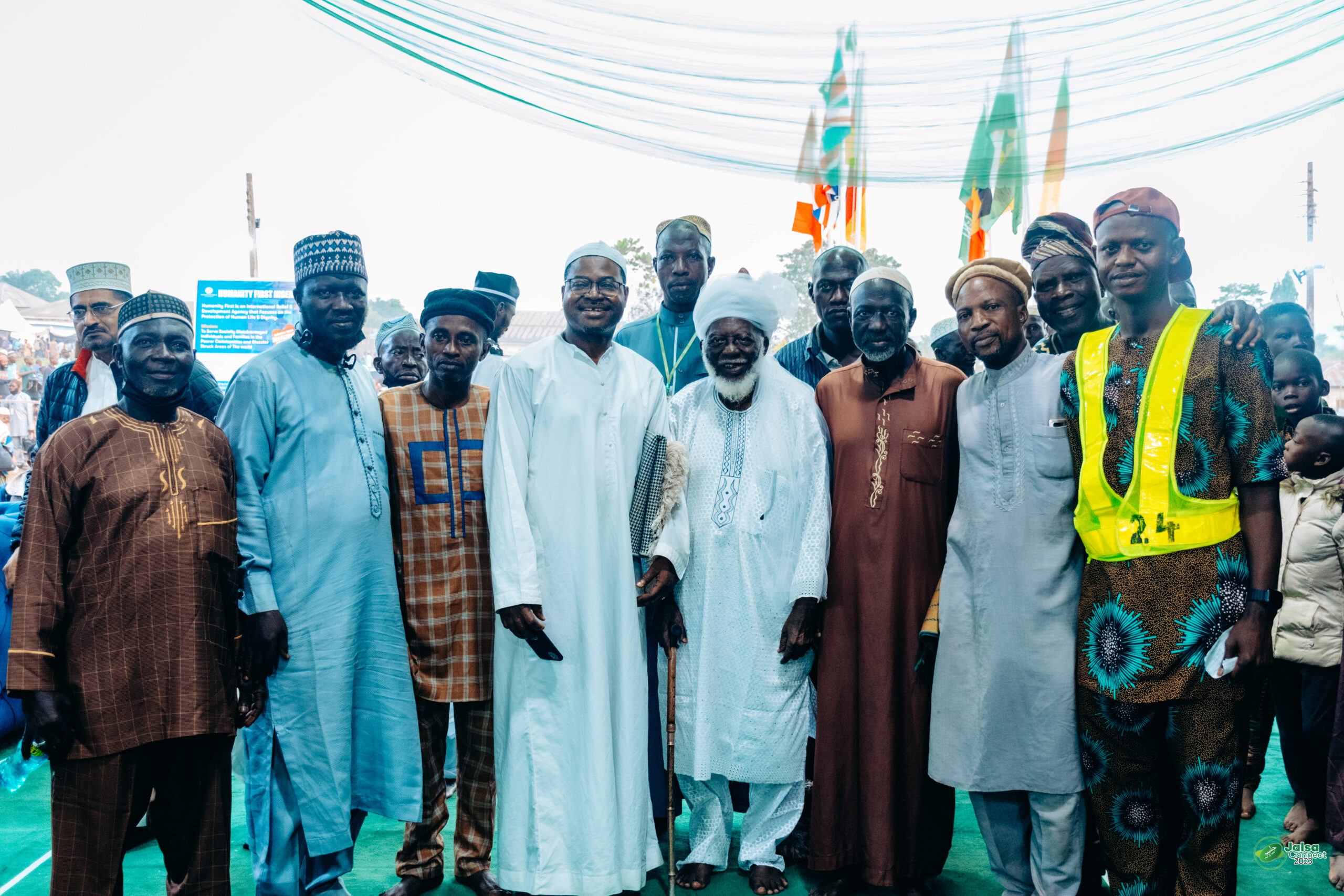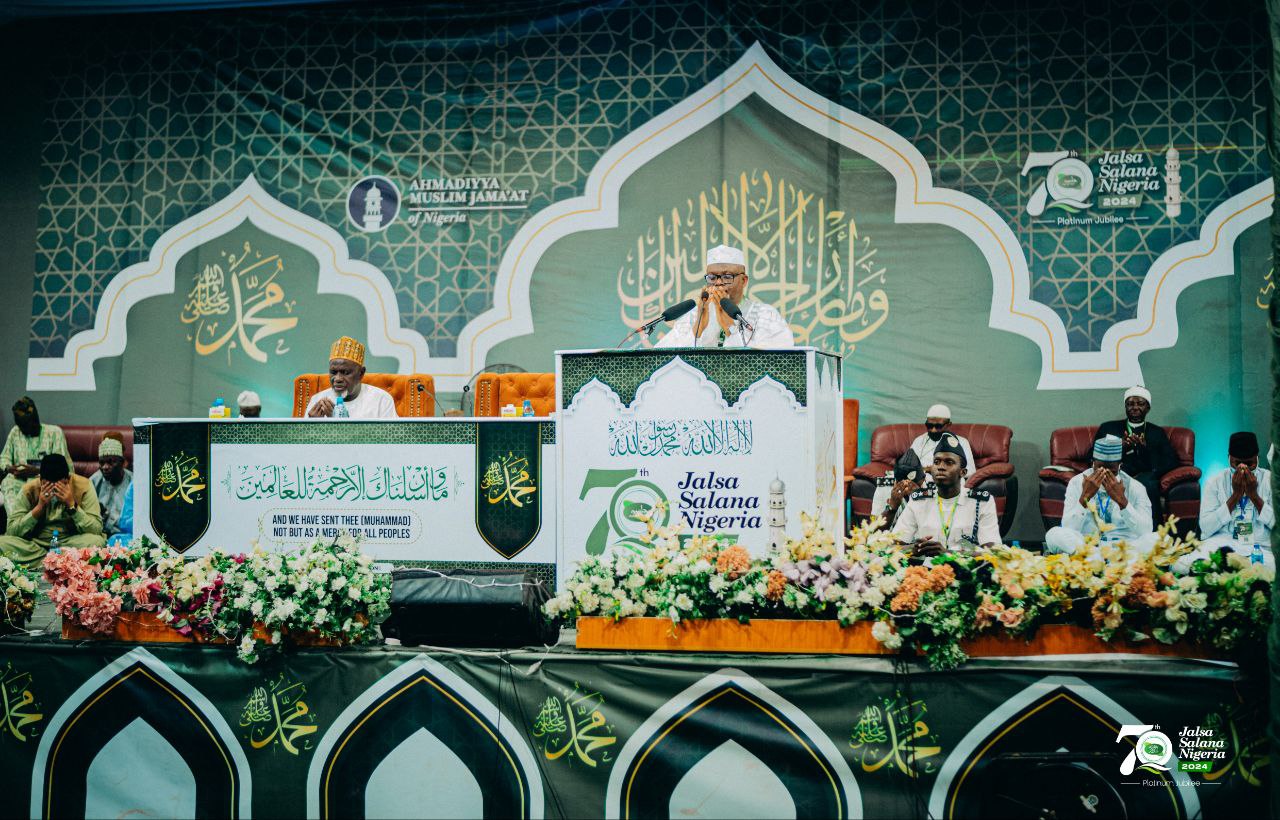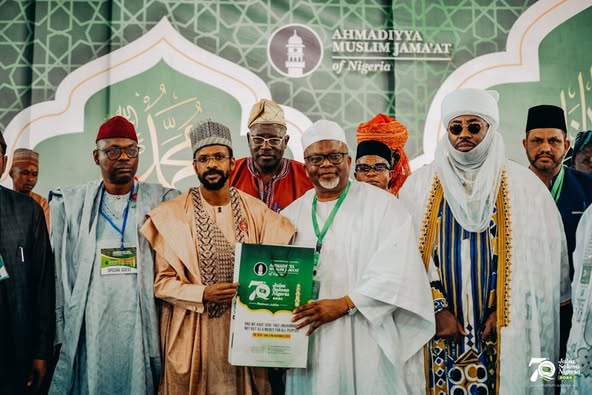By Mu’allim Sulaiman Tasleem
Across the world, countless gatherings—whether they are political summits, music festivals, or sports events—serve a variety of purposes, ranging from entertainment to otherworldly benefits. However, the Holy Quran emphasizes a higher ideal: gatherings that foster goodness, promote acts of charity, and create peace among people. These assemblies, held with the intention of seeking Allah’s pleasure, are described as noble and blessed:
لَا خَیۡرَ فِیۡ کَثِیۡرٍ مِّنۡ نَّجۡوٰٮہُمۡ اِلَّا مَنۡ اَمَرَ بِصَدَقَۃٍ اَوۡ مَعۡرُوۡفٍ اَوۡ اِصۡلَاحٍۭ بَیۡنَ النَّاسِ ؕ وَمَنۡ یَّفۡعَلۡ ذٰلِکَ ابۡتِغَآءَ مَرۡضَاتِ اللّٰہِ فَسَوۡفَ نُؤۡتِیۡـہِ اَجۡرًا عَظِیۡمًا
“There is no good in much of their (secret) conferences except the conferences of those who enjoin charity, or goodness, or the making of peace among men. And whoso does that, seeking the pleasure of Allah, We shall soon bestow on him a great reward.” — Surah An-Nisa, 4:115
The word نجوی in this verse is often limited to mean secret conversations, but its scope is broader. It refers to discussions between two or more people, whether secret, confidential, or open. According to some authorities, the word نجوی is not restricted to secret conferences but signifies all conferences, whether secret or otherwise, in which some people meet at a place and discuss matters or talk together (Lisan). Zajjaj also endorses the same view, saying that secrecy is not essential to نجوی which is applied to all conferences, whether open or secret (Muhit). The word thus extends to those conferences which, though not secret, are attended only by regular members or specially invited persons. This widens the scope of this verse, as describing what an ideal conference’s goal and purpose should be.
The Jalsa Salana, an annual gathering of the Ahmadiyya Muslim Community, exemplifies this Quranic ideal. Established by Hazrat Mirza Ghulam Ahmad (as), the Promised Messiah and founder of the community, the Jalsa continues a long-standing Islamic tradition of assemblies aimed at spiritual upliftment, knowledge, and unity. He said regarding this gathering:
“Do not consider this Jalsa to be equivalent to any ordinary worldly gathering. The fact of the matter is that it is founded upon the pure support of truth and the propagation of Islam.”
It is a gathering whose purpose aligns profoundly with the teachings of the Holy Prophet Muhammadsa, seeking knowledge, promoting congregational prayers, fostering the remembrance of Allah, strengthening ties of brotherhood, and uniting the Jama’at in devotion to God. This event, rooted in the prophetic tradition, has proven to be a platform where these ideals are realized year after year, perpetuating the sacred values of Islam in an organized and spiritually enriching manner.
The Inaugural Jalsa: A Humble Beginning
The Jalsa Salana was inaugurated on December 27, 1891, in Qadian. This first Jalsa was attended by 75 companions, setting a sacred precedent for future gatherings. The next year saw a dramatic increase to 327 attendees, and by the time of the Promised Messiah’s demise in 1908, over 2,500 participants were gathering annually. The Jalsa Salana steadily grew in prominence, attracting large gatherings from across the Indian subcontinent. By 1946, the final Jalsa Salana held in Qadian before the partition drew nearly 40,000 participants, marking a significant milestone in its history.
After the migration to Rabwah, the tradition continued with even greater fervor. The last Jalsa Salana held in Rabwah in 1983 witnessed an extraordinary attendance of around 250,000 Ahmadi Muslims, who gathered to see their beloved Khalifa one last time in Pakistan. This event stands as a testament to the unifying spirit and devotion of the community.
Today, the Jalsa Salana is held annually in various countries worldwide, with thousands of participants attending these gatherings. Despite being hosted in different countries of the world, the objective and purpose of every Jalsa remain the same, perfectly aligned with the vision of the Promised Messiahas.
By the Grace of Allah, the Ahmadiyya Muslim Jama’at in Nigeria is celebrating a historic milestone in 2024 by marking the Platinum Jubilee—70th Jalsa Salana. The journey of Jalsa Salana in Nigeria began in 1940, with the very first gathering held at Ikoyi Park in Lagos. From this humble beginning, the event has grown into a cherished tradition, uniting members of the Jama’at from across the nation and beyond. Over the years, it has become a powerful means of fostering spiritual enlightenment, strengthening bonds of brotherhood, and spreading the peaceful teachings of Islam.
Aims and Objectives of Jalsa Salana
The Promised Messiahas articulated the spiritual objectives of Jalsa Salana with great clarity in his book The Heavenly Decree. He emphasized that attendance should be solely for the sake of Allah, to benefit from heavenly discourses, and to engage in prayer with utmost sincerity. He articulated the following aims and objectives for all those attending the Jalsa Salana:
- The visit will be solely for the sake of Allah, to listen to heavenly discourses and to participate in prayer to their utmost ability.
- The voicing of such truths and verities will be the occupation of this Jalsa which are important for the progress of belief, certainty and enlightenment.
- Friends that join this Jamaat in each New Year shall, by attending on the appointed dates, get to meet their brethren, and as a result become friends.
- Also, anybody who passes away during the year, a prayer for their forgiveness shall be made at this Jalsa.
- It shall be endeavored to spiritually unite all brethren and to remove disassociation, unfamiliarity and hypocrisy from among them
He famously stated:
“It is essential for all those who can afford to undertake the journey, that they must come to attend this Convention which embodies many blessed objectives. They should disregard minor inconveniences in the cause of Allah and His prophet (peace be upon him.). Allah yields reward to the sincere persons at every step of their way, and no labour and hardship, undertaken in His way, ever goes to waste. I re-emphasize that you must not rank this convention in the same league as other, ordinary, human assemblies. This is a phenomenon that is based purely on the Divine Help, for propagation of Islam.”
Alignment with Islamic Teachings
The vision of Jalsa Salana aligns seamlessly with the teachings of the Holy Prophet Muhammadsa, who emphasized the importance of gatherings for seeking knowledge, performing collective worship, and fostering unity. The Hadith states:
وَمَا اجْتَمَعَ قَوْمٌ فِي بَيْتٍ مِنْ بُيُوتِ اللَّهِ يَتْلُونَ كِتَابَ اللَّهِ وَيَتَدَارَسُونَهُ بَيْنَهُمْ إِلاَّ حَفَّتْهُمُ الْمَلاَئِكَةُ وَنَزَلَتْ عَلَيْهِمُ السَّكِينَةُ وَغَشِيَتْهُمُ الرَّحْمَةُ وَذَكَرَهُمُ اللَّهُ فِيمَنْ عِنْدَهُ
“No people gather in one of the houses of Allah, reciting the Book of Allah and teaching it to one another, but the angels will surround them, tranquility will descend upon them, mercy will envelop them, and Allah will mention them to those who are with Him.”
From Friday prayers to the Hajj pilgrimage, Islamic gatherings have always served as moments of spiritual renewal and collective strength. The Jalsa Salana continues this legacy through various soul lifting lectures and programs that impart religious knowledge, and also aligning with the Quranic command to remain in the company of the truthful:
یٰۤاَیُّھَا الَّذِیۡنَ اٰمَنُوا اتَّقُوا اللّٰہَ وَ کُوۡنُوۡا مَعَ الصّٰدِقِیۡنَ
“O ye who believe! fear Allah and be with the truthful.”— Surah At-Tawbah, 9:119
An avenue of Knowledge and spread of faith
The first Jalsa Salana laid the foundation for this sacred gathering, with spiritual discourse, prayer, and strategic discussions about the future of the community. During this historical event, Hazrat Maulana Nooruddinas one of the Promised Messiah’s closest companions, delivered a speech addressing a theological issue—the death of Jesus—followed by a qaseedah recited by Hazrat Syed Hamid Shah Sahib (ra). The Promised Messiahas himself delivered a powerful lecture from his book Tauzeeh-e-Maram, responding to objections raised by Muslim clerics. As the Jalsa grew, the community continued to benefit from the vast array of knowledge shared, deepening their understanding of Islamic teachings.
It aligns with the Prophet’s (sa) injunction to seek knowledge, as reflected in the Hadith:
“Seeking knowledge is an obligation upon every Muslim man and woman.”
Jalsa all around the world follow this precept as lectures and series of educating programs are the main features of our Jalsas.
This event was not merely a gathering but also a platform for strategic planning to propagate Islamic teachings and strengthen the community’s collective faith.
During the first Jalsa, the Majlis-e-Shura (Consultative Body) convened to discuss spreading the message of Islam in Europe and America. Key initiatives were planned, including the dissemination of a leaflet outlining Islamic teachings, the establishment of a press in Qadian, and the launch of a newspaper to promote Ahmadiyyat.
Subsequent Jalsas worldwide have continued on this exemplary path, serving as avenues for strategic meetings aimed at advancing the Jama’at’s progress. Taking Nigeria Jama’at as a case study, Jalsa programs often include Tabligh seminars, where stakeholders meet before or after the event to devise strategies for spreading Islam Ahmadiyya, also initiatives for new converts, and specialized training sessions. Likewise, the Ahmadi Muslim Students Association (AMSA) of Nigeria utilizes the Jalsa as an opportunity to hold multi-day training sessions after the event, equipping members with effective Tabligh strategies and essential knowledge to preach Islam Ahmadiyya and many more. All these are possible through the coming together for Jalsa.
Fostering Brotherhood and Unity
A defining feature of Jalsa Salana is its ability to foster brotherhood and unity within the community. The Promised Messiah (as) emphasized this in his address, stating that the gathering would provide an opportunity for followers to unite in love, with mutual respect and sincerity, and free from hypocrisy. The Jalsa Salana serves as a living embodiment of the Quranic injunction in Surah Al-Imran, verse 103, where Allah commands believers to hold fast to His rope and avoid division: “And hold fast, all together, by the rope of Allah and be not divided; and remember the favor of Allah which He bestowed upon you when you were enemies and He united your hearts in love.”
The unity fostered by Jalsa Salana is tangible. As attendees gather from different parts of the country come together not only to strengthen their faith but to build enduring relationships with their fellow believers. The event encourages attendees to meet new people, work together in various organizational roles, and experience the collective spirit of brotherhood that is a cornerstone of Islam.
Conclusively, Jalsa Salana stands as a beacon of spiritual enlightenment, reflecting the prophetic tradition of seeking knowledge, fostering unity, and engaging in acts of devotion to Allah. It continues to inspire generations of believers, providing them with a platform for personal growth, spiritual renewal, and the collective strength of a united community. In this way, Jalsa Salana is not only a gathering of people but a fulfillment of the divine ideals of unity, knowledge, prayer, and brotherhood, just as exemplified by the teachings of the Holy Prophet Muhammadsa
Reference
- Mirza Bashirud-Din Mahmud Ahmad in Malik Ghulam Farid, et al. (2018), The Holy Quran with English Translation and Commentary, Vol. 2 page 702
- Majmua-e-Ishtiharat [2019], Vol. 1, p. 361
- Hazrat Mirza Ghulam Ahmad (2006), The Heavenly Decree, page 74-75
- Ishtihar 7 Dec. 1892, Majmoo`ah Ishtiharat Vol. 1, Page 341
- Sunan Ibn Majah, Kitabul Muqaddimah, Hadith 225
- Tarikh e Ahmadiyyat vol. 1, pp.442-43
About the Author
Sulaiman Tasleem is a Missionary of Ahmadiyya Muslim Jama’at in Nigeria. He graduated from Jamia Ahmadiyya Nigeria (an Institute for Missionary Training and Islamic Theology) in 2019 and has since been retained as a lecturer at the institution, where he continues to serve. Tasleem is an active member of Majlis Ansar Sultanul Qalam, the Muslim Writers Guild of Nigeria, and also authors a personal blog dedicated to defending and promoting Islamic teachings.





